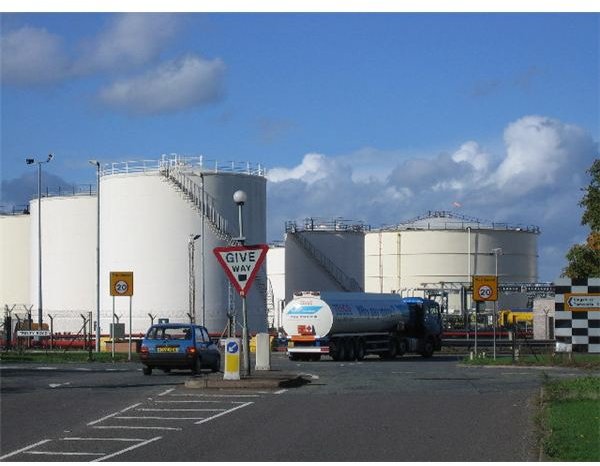Understanding Positive Effects of Offshore Oil Drilling
Background on the Controversy
In 1981, the majority of those who were seated in the US Congressional House imposed the Outer Continental Shelf Moratorium in order to preserve the most sensitive areas of the US coastal waters against accidental oil spills. This moratorium declared the Atlantic and Pacific Coasts, including Alaska’s Bristol Bay, as off-limits to oil corporations in relation to oil drilling explorations.
The term “outer continental shelf” (OCS) refers to the part of the gently sloping ocean floor between land and the deep waters of the ocean. The US OCS was divided into four regions in order to establish territorial boundaries in these areas. These are the Gulf of Mexico, the Atlantic Region, the Pacific Region and the Alaskan Region. Only the Gulf of Mexico was not covered by the OCS Moratorium.
In 2008, Congress allowed this moratorium to expire, of which the incumbent President Bush attempted to lift but did not succeed in doing so. Last March 30, 2010, President Obama announced his plan to carry on with the lifting of the moratorium in the Atlantic and Pacific OCS. However, the U.S. West Coast or Northeast waters and the coast of Florida will stay under the protection of the ban, but oil drilling explorations 125 miles off Florida coasts in the Eastern Gulf of Mexico will be opened for lease. The latter is said to be adjacent to an area that already has thousands of existing wells and hundreds of drilling platforms identified under the Gulf of Mexico OCS.
If President Obama’s proposed lifting pushes through, this leaves the Alaskan OCS, U.S. West Coast and Florida coasts as the remaining regions covered by the OCS moratorium.
What are the Expected Positive Effects of this Proposed Oil Drilling Expansion?
The positive effects of oil drilling presented by those who advocate additional offshore oil drilling sites are:
- Attainment of energy independence as a country.
- Creation of new employment opportunities to benefit millions of US citizens.

The Concept of Energy Independence
Energy independence is actually a general concept about having abundant domestic oil resources to satisfy the country’s day to day demand for crude oil and its by-products, without feeling threatened by any foreign embargo and other factors that will undermine the country’s economic security. According to the Central Intelligence Agency’s (CIA) World Fact Book, the US is the number one consumer of oil on a global scale. This is based on its 2008 consumption totaling 19,500,000 barrels per day. Obviously, the US’s dependence for foreign oil sources is quite substantial.
Daily global oil production is equivalent to 85 million barrels of oil per day, which means America’s daily consumption is equivalent to 23% or almost ¼ of the total oil produced on a global scale. On America’s part, about 70% of its daily consumption is used to mobilize all kinds of transport vehicles running, plying, sailing or flying within and out of the country.
Please proceed to the next page for a continuation of the concept of energy independence.
Is it Possible for the U.S. to Achieve Energy Independence Once the Proposed Drilling Pushes Through?
A senior energy analyst of the Energy Information Administration or EIA (information arm of the U.S. Dept.of Energy) disclosed that opening the Atlantic coasts from Delaware to Florida including the ocean floor beyond Florida’s shore in the Eastern Gulf of Mexico to oil drills, is not expected to have a significant impact on oil prices. The amount of total production expected by 2030, is only 200,000 barrels per day which is less than 1% of total global consumption.
Rhetorically, if oil companies will test drill as to which area has the most potential as oil deposit resources and are awarded with the lease on these offshore sites, it will take another five years and about $2 billion more to put up the oil rig that could produce the first drop of oil. In addition, oil industry experts maintain that no matter how much oil is speculated, not all of it will be recovered. Oil companies will have to consider only the oil that can be removed at a cheap cost, to ensure that there will be enough return on their investments.
In fact, there is no guarantee that oil prices will go down in the global market since the amount of domestic oil expected to be produced would not be significant enough to disrupt global oil prices. Projected domestic production is a far cry from the 10 million barrels a day that the Saudi Arabians produce to meet the daily global demand of 85 million barrels.

Does Energy Independence Mean Having Better Economic or Domestic Conditions?
Currently, the Organization of Petroleum Exporting Countries (OPEC) has Iran, Iraq, Saudi Arabia, Venezuela, Kuwait, Qatar, Libyan Arab Jamahniya, United Arab Emirates, Algeria, Nigeria, Ecuador and Angola as its members. Except for the United Arab Emirates, energy independence regarding the other OPEC member countries seems to have very little effect in their respective domestic conditions. Most US oil imports come from Mexico, Canada, and Venezuela in as much as their oil resources are in closer proximity to the US rather than the Middle East.
It is important therefore, that US consumers are aware that the promise of energy independence does not equate to a promise of oil price reduction or better economic conditions. President Obama himself stated that opening more American coastlines to oil and natural gas drilling will not lower energy prices and will not reduce America’s dependence on foreign supplied oil.
The Creation of Jobs for Millions of US Citizens
Even without the additional oil drilling projects off the US Atlantic Coast, there is a current lack of oil industry workers. As a result, most of these offshore oil drilling jobs are being outsourced in other countries. There are two main reasons why. First, there are not enough engineers trained in geosciences, and secondly, there are not enough individuals who are willing to do the physical work involved as a roughneck or oil rig worker. This is in spite of the generous compensation package offered by oil companies which include medical and dental insurance, disability insurance, life insurance, 401K plan, vacation time and profit sharing plan. College undergraduates or fresh graduates can expect as much as $60,000 or more plus bonuses annually.

What kind of working conditions exist in an offshore oil rig?
The entry-level position in offshore oil rigs is called “roughneck”. Accordingly, food provisions are described as both good and great and taken in clean dining areas, while the quarters are likewise clean and well-kept. Quarters are also described as cramped where privacy is said to be hard to come by. Nevertheless, oil rig companies provide gym and recreational facilities like satellite TV rooms.
Those who have had previous experiences working at these rigs share that they had to undergo rigorous psychological testing before they were hired. There will be times when roughneck jobs require the individual to be away from home for weeks since the offshore drilling vessel will not even be in sight of land to visit. The job requires long hours of work in all kinds of weather conditions and sometimes described as dangerous situations. There will even be times when oil rig workers can find themselves 100 miles offshore in the middle of a hurricane.
The oil industry all across the globe has a lot of job opportunities because entry-level jobs as roughnecks do not require college education. Employment opportunities are varied and lucrative particularly for those with bachelor’s degrees, Master’s and PhDs in the geosciences field. Hence, creating more jobs by opening new oil drilling sites off the Atlantic and Pacific Coasts will only add to what is already considered in the oil industry, a major shortage of workers.
As a summary of our analysis, the positive effects of oil drilling are merely idealistic concepts that lacked support in terms of actual benefits to be gained. The promise of energy independence entails more than just additional oil drilling sites. Billions of dollars are involved just to see if the entire process of achieving energy independence can push through. One can take a look at other oil producing countries who seemed to have spent most of their resources for this; but their populace doesn’t seem to benefit economically from it either. The promise of job creation involves mostly work that is touted as “not for everyone”. There aren’t too many that would be willing to brave the physical hardship and mental anguish of spending weeks and months, of not being able to see land or family. Their families on the other hand are in constant worry about the possible harms that can befall them. A discussion about the harms of oil drilling will take another article of course, because its list is longer than that of its benefits.
Reference Materials:
- https://www.gomr.mms.gov/homepg/whoismms/whatsocs.html
- https://www.eia.doe.gov/oiaf/aeo/otheranalysis/ongr.html
- https://www.scientificamerican.com/article.cfm?id=can-offshore-drilling-make-us-independent&offset=2
- https://tonto.eia.doe.gov/energyexplained/index.cfm?page=oil_home
- https://americanenergyindependence.com/
- https://www.cia.gov/library/publications/the-world-factbook/rankorder/2174rank.html
- https://www.1-oil-job.com/offshore-rig-jobs.html
- https://www.oil-job.com/oil_and_gas_jobs_faq.html
- https://www.opec.org/opec_web/en/about_us/25.htmI
- https://ecology.com/ecology-today/2008/10/22/what-does-energy-independence-really-mean/
- https://www.investmentu.com/IUEL/2010/April/how-to-eliminate-americas-dependence-on-foreign-oil.html
- https://www.reuters.com/article/idUSTRE62T06520100331
Images courtesy of Wikimedia Commons
This post is part of the series: Weighing the Pros and Cons of Oil Drilling
In weighing the pros and cons of the oil drilling debates, each aspect was carefully evaluated. The benefits were concepts that were easily challenged while the potential harms became realities, even before the debate had ended.
